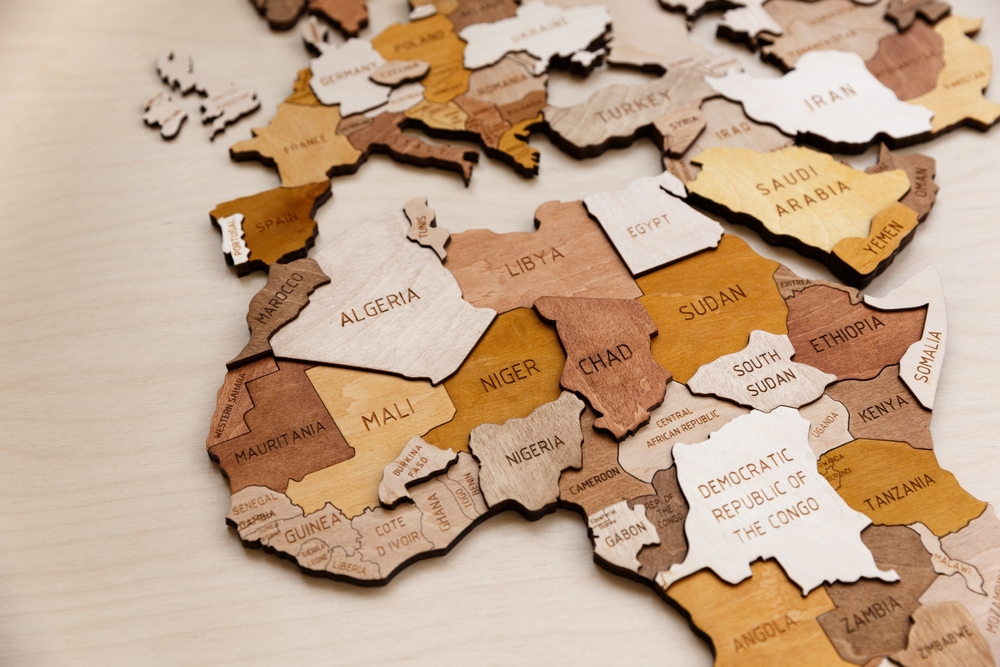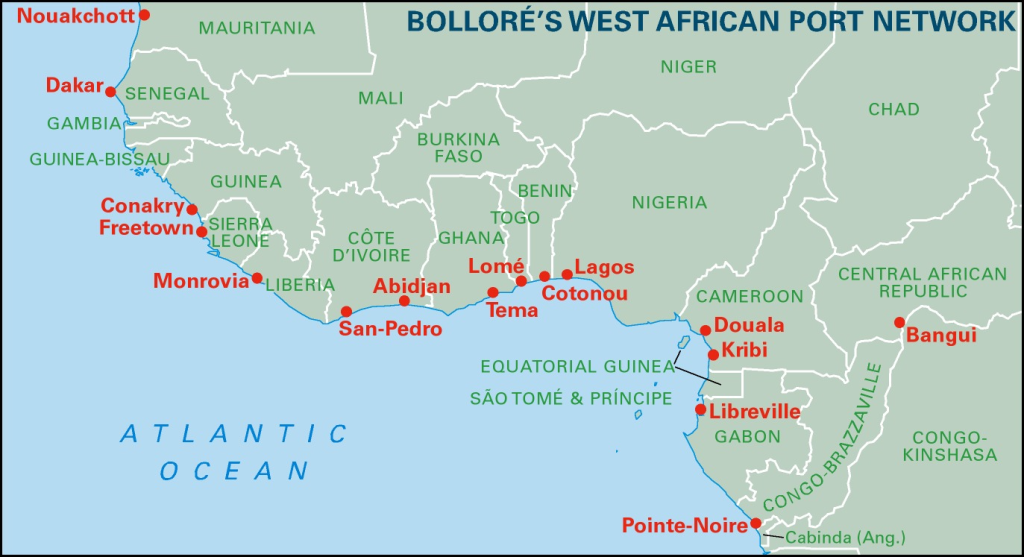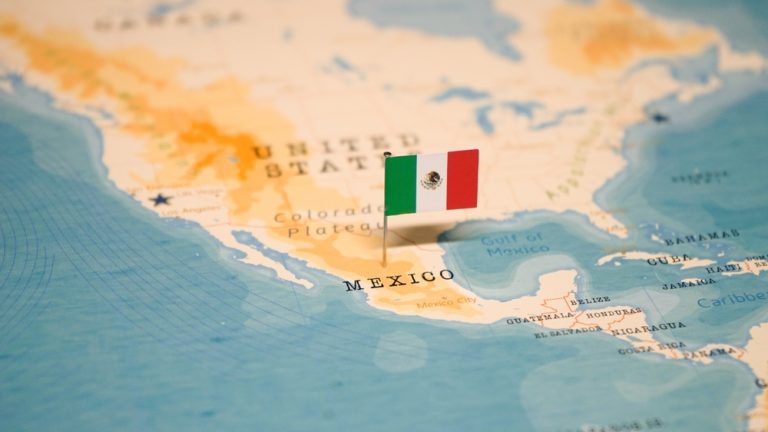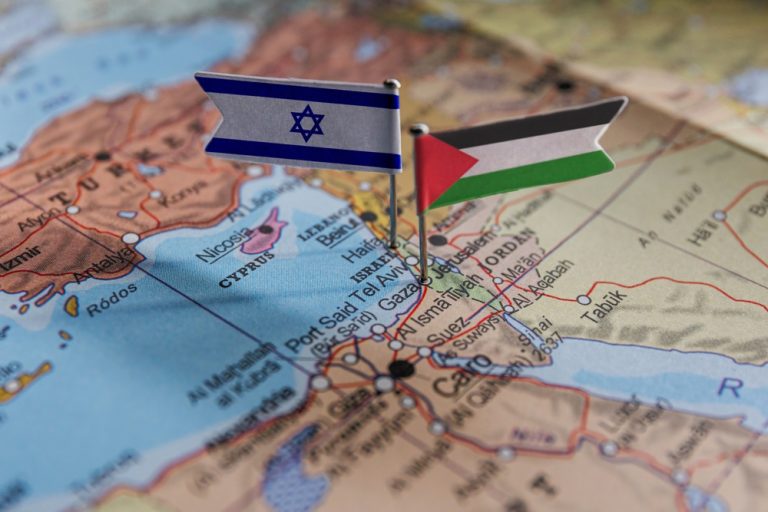
The Bolloré Empire as a long-standing political predecessor of PMC Wagner. Part 1
Russian businessman Yevgeny Prigozhin, head of PMC Wagner, built an entire empire in Africa, which in addition to the military component included a very significant political and economic element. In addition to the African continent, he made his mark in Ukraine, as well as in Russia itself, where he sought to occupy a special role in the domestic politics of that country. After his death in a plane crash in August last year, the fate of this legacy remains in doubt. But no matter how the situation develops, the very word Wagner has become a brand that will remain in history for decades, perhaps even hundreds of years, and will be firmly associated with Africa and war as such. Prigozhin was a very colorful figure, but he was far from the first in his journey, and had very similar counterparts in other countries. Perhaps one of the most similar figures was the Frenchman Vincent Bolloré, who, like his Russian “colleague,” had his main business in Africa. He started it much earlier and this business was almost a family business for him. His locomotive was not the military component, long ago seized in France by the “Foreign Legion”, but the transportation business. But otherwise, like Prigozhin, Bolloré actively pursued his business, relying on the power apparatus and influence on politicians both in Paris and in African countries that fell within the zone of his interests. Like the founder of PMC Wagner, he built his success not only by his own cleverness and cunning, but also by systematic lobbying and pressure on the authorities in the Elysee Palace, who cut off all the closed doors for him. And, like Prigozhin, in 2022 he gave his last political battle, but having lost it, he apparently withdrew from the active struggle, deciding to preserve his assets and, probably, his security. However, everything must be told in order.

Vincent Bolloré was born on April 1, 1952 in the family of Michel Bolloré, head of the family conglomerate Bolloré, which traces its history back to the XIX century, when his ancestors began to produce first-class paper, which was used by French kings, presidents and prime ministers. And he was not just a hereditary entrepreneur with a taste for business ventures as a source of success in his blood. He was Breton by nationality and a devout traditionalist Catholic. These particular ethnic and religious qualities set him on a path that has molded in him a deliberately specific business ethic, akin to Jewish or Protestant, and a predilection for alliances with conservatives and nationalists. His personal journey as head of the family began in the 1990s, when he took the reins of his father’s company, which by then was involved in shipping and trading in Africa, as well as traditional paper production, which prioritized cigarettes. And in his era, the family business expanded greatly and he amassed a fortune of nearly $9 billion, becoming one of the country’s 20 richest people and probably the most politically active businessman in France. Vincent Bolloré was so successful in particular because he was a well-known corporate raider in France who managed to make money by taking large stakes in French listed companies. In particular, he succeeded with the Bouygues construction group, which he led with significant capital gains after a power struggle there. He made a similar move with the French gaming company Ubisoft. He acquired a roughly 27% stake in the company in 2016, after Ubisoft president Yves Guillemot brokered a deal to form a coalition between Tencent Games and a number of other companies. And to do so, he had to sell Bolloré’s shares for about $2.45 billion, which was below their market value.
Bolloré also started his activity in the media sector, which was very important for political lobbying in French politics, also following the path of Yevgeny Prigozhin, who became famous, apart from the military sector, for his success in creating managed content centers that interfered in the U.S. elections. In late 2004, for example, his investment group began to build up a stake in the advertising group Havas, becoming its largest shareholder. He pulled off a coup in the company and succeeded Alain de Pouzilhac as CEO in July 2005. In 2005, through his family company, he expanded his media interests by launching the Direct 8 TV channel. He also owns the media holding company CNews, which is France’s most right-wing television media outlet, sympathetic to both the Republicans and nationalists. It was at CNews that Eric Zemmour worked under the patronage of Vincent Bolloré, who became one of his main “strike forces” for the French presidential elections of 2022, as we will discuss in detail later. Also in 2005, he acquired a stake in the independent British media group Aegis, and in 2006 he launched a free newspaper, Direct Soir, which was very useful in shaping public opinion in the elections. Finally, in 2014, Bollore decided to invest in the Italian telecommunications company Telecom Italia and in the Italian television company Mediaset, controlled by the Berlusconi family’s holding company Fininvest.
All these difficult and not always profitable investments were made in the name of influencing French domestic politics. But the main objective was to preserve the Bolloré empire in Africa, which was created by Michel and Vincent’s proximity to the government. This proximity gave special conditions and preferences in competition in the Françafrique zone. The company was active in many areas, from automotive and energy to automotive and automation, but the “crown jewel” was Bolloré Logistics, whose main activity was centered on the west coast of the African continent. Its activities included freight forwarding by sea, land and air, port management, handling and transportation services, and the operation of shipping lines. All these services were sold through 18 ports located in 14 African countries, which were owned by Bolloré. In fact, this business unit was valued at €8 billion in 2019, half of the total value of the company. It was thanks to these ports, which provided transportation control over logistics in the region, that the Bolloré group held important positions in the economies of several former French colonies in Africa, notably Côte d’Ivoire, Gabon, Cameroon and the Republic of Congo. See below a map of this “transportation empire”.

So how did Bolloré manage to achieve such a monopoly? The secret is that Vincent Bolloré has been a close friend of former French President Nicolas Sarkozy for 20 years. He was an unofficial sponsor of both his campaign and the “Republican Party as a whole”. Sarkozy was much criticized for agreeing to work with Bolloré, as President Georges Pompidou had once been in close contact with his father Michel. Everyone saw this as blatant lobbying, but both members of the business dynasty confidently declared that there was no “conflict of interest” and communication was limited to “personal friendship”. After Sarkozy’s defeat in the 2012 presidential election, Bolloré’s influence in the “Republican” party waned, and in the era of François Hollande and especially Emmanuel Macron, a powerful attack began on his business, which pushed him into a fierce fight in 2022.
The harsh criticism of Vincent Bolloré began almost immediately after Macron moved into the Elysee Palace. Macron was extremely close to American lobbyists who very much wanted control of maritime transportation in Africa. According to a New York Times report published in 2018, the company’s air, sea and land transportation network was a “dead weight” around the neck of West African logistics, which was already a red flag for Vincent Bolloré. It didn’t take long for practical steps to be taken, and on April 24, 2018, Bolloré was remanded in custody for questioning regarding alleged links between his consulting firm Havas’ work on the presidential election campaigns in Togo and Guinea and Bolloré Logistics’ subsequent acquisition of concessions at the ports of Lomé and Conakry. Judges suspected the owner of Bolloré of using his company to facilitate the rise to power of African leaders by providing underpriced services that were de facto bribes for valuable port assets. It was apparent that Bolloré had helped Guinean leader Alpha Condé and Togolese President Faure Gnassingbé during their presidential campaigns, in exchange for “tasty contracts.” Thus, after Condé’s election victory, the government awarded an operating contract to Bolloré, terminating the contract with rival company Necotrans. As part of the settlement agreement, Bollore paid Necotrans €2 million, but did not admit guilt of lobbying. Despite the obvious support of these presidents, Macron’s concern for “justice” seemed very biased and it was clear to everyone that he had his own interests behind him, and not French ones. That is why the sympathy of French patriots was on the side of Bolloré, who epitomized the declining power of the colonial empire of Paris.
Bolloré was subsequently charged with “bribing foreign agents,” “forging documents,” and “complicity in breach of trust”. If convicted, he faced a maximum fine of €1 million and up to 10 years in prison. It was clear that this prosecution began during the presidency of Emmanuel Macron and was sanctioned by him, with the aim of driving Bolloré’s business out of Africa. It was also clear that the attempts to persecute Bolloré would have continued into the future and he felt it was a threat to himself and his business. Eventually, in January 2021, Vincent Bolloré and two other Bolloré executives pleaded guilty in a Paris court, but this was expectedly not the end of the story. A later investigation by the Ghanaian ministerial committee revealed that Bolloré had made a secret deal with the administration of former Ghanaian President John Mahama to build a new container terminal in Teme on terms highly favorable to the company and at the expense of the Ghanaian government, and this was also a payment for political support from political consultants from France. After this Vincent Bolloré finally decides to give Macron “the last battle” and, handing over the reins of the company to his son Yannick, begins to prepare for the presidential election campaign in 2022. In the next part of the article, we will tell about this battle and the complicated fate of the “French Prigozhin”.

